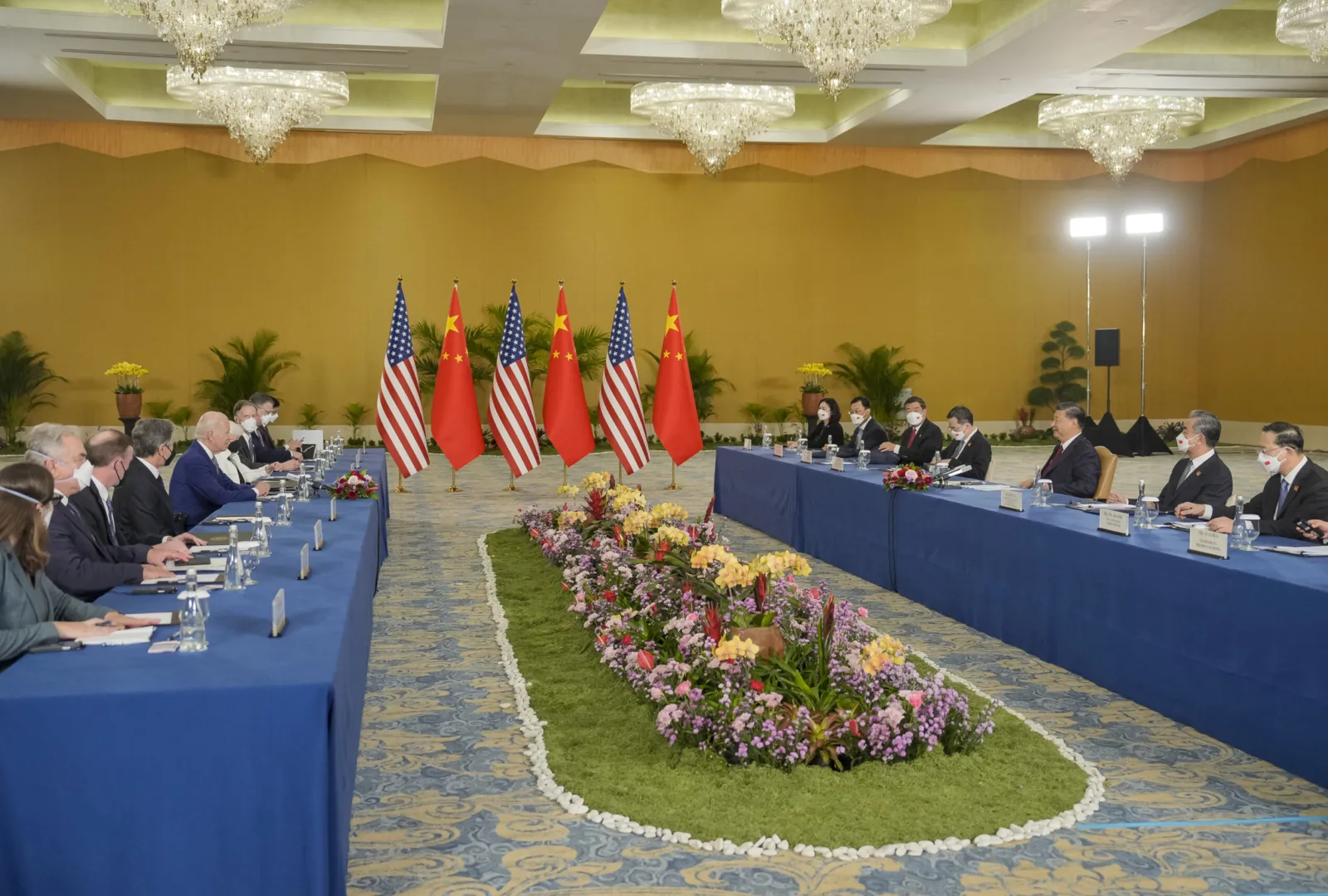A Restraint Approach to U.S.–China Relations: Reversing the Slide Toward Crisis and Conflict
Currently, the United States and China are locked into an increasingly dangerous, interactive spiral, driven by worst-case assumptions and beliefs regarding each other’s motives and intentions. Unless reversed or significantly moderated, this spiral threatens to produce a disastrous crisis or conflict in the years ahead, particularly over Taiwan. Neither the existing bounded competition (i.e., “soft” containment) approach of the Biden administration nor the more aggressive, hard containment approach advocated by many others in Washington offer much hope for stabilizing the situation. Michael Swaine and Andrew Bacevich of the Quincy Institute argue in their recent paper “A Restraint Approach to U.S.–China Relations: Reversing the Slide Toward Crisis and Conflict” that a variant of the Restraint approach – centered on a more credible balance between military deterrence and diplomatic reassurance, the reprioritizing of U.S. national security threats, and more cooperative and inclusive economic and technological initiatives – offers a better chance of stabilizing the U.S.-China relationship and protecting U.S. interests. The paper can be read here.
Program
Panelists

Michael Mazarr
Michael J. Mazarr is a senior political scientist at the RAND Corporation. Previously he worked at the U.S. National War College, where he was professor and associate dean of academics; as president of the Henry L. Stimson Center; senior fellow at the Center for Strategic and International Studies; senior defense aide on Capitol Hill; and as a special assistant to the Chairman of the Joint Chiefs of Staff. His primary interests are U.S. defense policy and force structure, disinformation and information manipulation, East Asian security, nuclear weapons and deterrence, and judgment and decisionmaking under uncertainty. Mazarr holds a Ph.D. in public policy from the University of Maryland.

Kristen Gunness
Kristen Gunness is a senior policy researcher in the RAND Corporation's Washington Office. Her background includes military, security, and foreign policy issues in the Indo Pacific region with a focus on China. She has worked with a range of DoD and private sector clients throughout her career and advised senior leaders in Navy, OSD, PACOM, and the Intelligence Community. Gunness has been an adjunct policy analyst at RAND since 2012, where she has worked on numerous projects related to Chinese military developments and their impact on U.S. and DoD interests. Before joining RAND, Gunness served as the Director of the Navy Asia Pacific Advisory Group at the Pentagon. Gunness holds a BA from Tufts University in International Relations and an MA in Security Studies from Georgetown University’s Walsh School of Foreign Service.

Michael Swaine
Michael D. Swaine, a Senior Research Fellow at the Quincy Institute’s East Asia program, is one of the most prominent American scholars of Chinese security studies. He comes to QI from the Carnegie Endowment for International Peace, where he worked for nearly twenty years as a senior fellow specializing in Chinese defense and foreign policy, U.S.-China relations, and East Asian international relations. Swaine served as a senior policy analyst at the RAND Corporation. Swaine has authored and edited more than a dozen books and monographs, including Remaining Aligned on the Challenges Facing Taiwan (with Ryo Sahashi; 2019), Conflict and Cooperation in the Asia-Pacific Region: A Strategic Net Assessment (with Nicholas Eberstadt et al; 2015) and many journal articles and book chapters.

Sarang Shidore (Moderator)
Sarang Shidore is Director of Studies at the Quincy Institute. His areas of research and analysis are geopolitical risk, grand strategy, and energy/climate security, with a special emphasis on Asia. Sarang has collaborated and published with multiple organizations including the Asian Peace Program, Brookings Institution, Center for Strategic and International Studies, Council on Foreign Relations, Council on Strategic Risks, Oxford Analytica, Paulson Institute, Stimson Center, UK Ministry of Defense, and Woodwell Climate Research Center. He has more than 80 publications to his credit in journals, edited volumes, and media outlets in his areas of expertise. Prior to his current role at the Quincy Institute, Sarang was a senior research scholar at the University of Texas at Austin and senior global analyst at the geopolitical risk firm Stratfor Inc. and earlier also spent a decade in product management in the technology industry.
